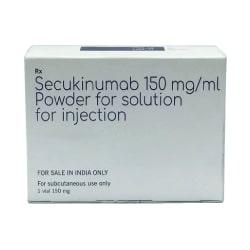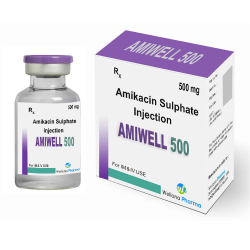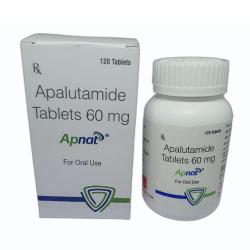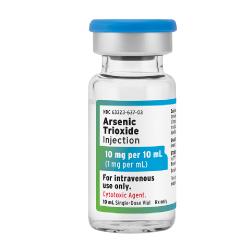Description
Secukinumab is a medicine that blocks a substance in the body called interleukin-17A. It’s used to help with:
- Moderate to severe plaque psoriasis in people 6 years and older who can take pills or have light therapy.
- Grown-ups with active psoriatic arthritis (PsA).
- Grown-ups with active ankylosing spondylitis (AS).
- Grown-ups with active non-radiographic axial spondyloarthritis (nr-axSpA) who show signs of inflammation.
Dosage and Side Effects
- Plaque Psoriasis:
- For Adults: A usual starting dose is 300 mg by a shot under the skin at Weeks 0, 1, 2, 3, and 4, then 300 mg every 4 weeks. But sometimes, a lower dose of 150 mg might be okay.
- For Kids 6 Years and Older: The dose depends on their weight, and they get a shot under the skin at the same intervals based on their weight.
- Psoriatic Arthritis:
- If someone has both psoriatic arthritis and moderate to severe plaque psoriasis, they use the same dose as for plaque psoriasis.
- For others:
- Start with a loading dose: 150 mg at Weeks 0, 1, 2, 3, and 4, then 150 mg every 4 weeks.
- Or without a loading dose: 150 mg every 4 weeks. They might switch to 300 mg every 4 weeks if the arthritis is still active.
- Ankylosing Spondylitis:
- Similar to psoriatic arthritis, they can start with or without a loading dose: 150 mg at Weeks 0, 1, 2, 3, and 4, then 150 mg every 4 weeks. If the condition continues, they might consider 300 mg every 4 weeks.
- Non-Radiographic Axial Spondyloarthritis:
- Again, they can start with or without a loading dose: 150 mg at Weeks 0, 1, 2, 3, and 4, then 150 mg every 4 weeks.
The most commonly observed adverse reactions, occurring in more than 1% of individuals, include nasopharyngitis, diarrhea, and upper respiratory tract infection
FAQ's
What is Secukinumab used for?
Secukinumab is a medication primarily used to treat various inflammatory conditions, including moderate to severe plaque psoriasis in adults and children, psoriatic arthritis, ankylosing spondylitis, and non-radiographic axial spondyloarthritis. It works by targeting specific components of the immune system involved in these conditions.
Are there any precautions or considerations when taking Secukinumab?
Before starting Secukinumab, it’s essential to discuss your medical history, especially concerning infections, allergies, or prior history of tuberculosis (TB). Secukinumab can potentially increase the risk of serious infections, so patients need to be vigilant about any signs of infection and should not receive live vaccines while on Secukinumab. Additionally, individuals with a history of inflammatory bowel disease should use Secukinumab cautiously.
What are the common side effects of Secukinumab?
Common side effects of Secukinumab injection include symptoms like nasopharyngitis (inflammation of the nasal passages and throat), diarrhea, and upper respiratory tract infections. However, serious side effects such as allergic reactions or severe infections are possible and should be promptly reported to a healthcare professional. It’s important to discuss any concerns or potential side effects with your doctor before and during treatment with Secukinumab.






